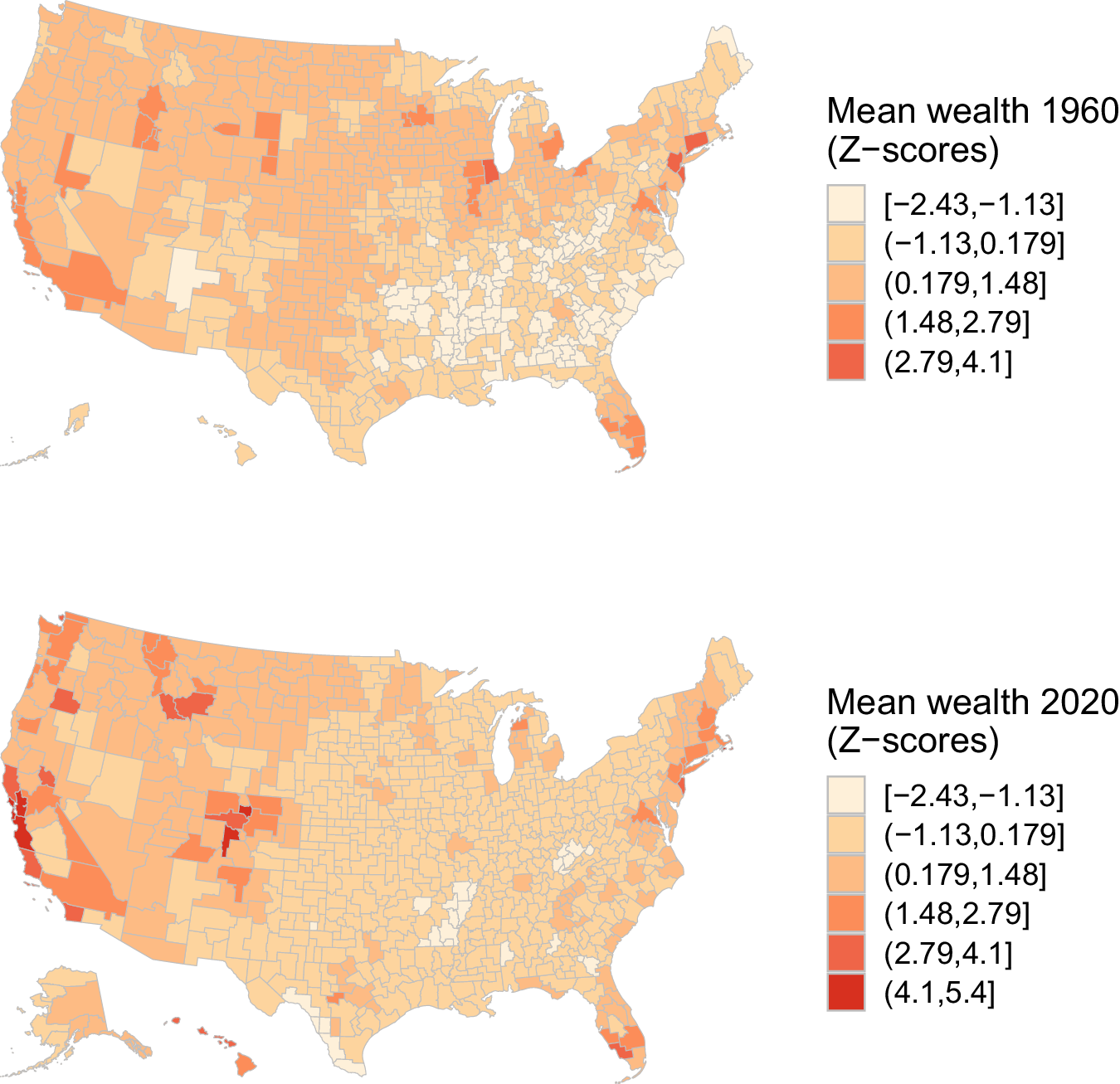Soaring wealth inequality has remade the map of American prosperity
Soaring wealth inequality has remade the map of American prosperity
by Tom Kemeny , The Conversation
One need only glance at headlines about Jeff Bezos, Elon Musk and other super-wealthy individuals to understand that wealth in America is increasingly concentrated in fewer and fewer hands. Inequality is sharply on the rise.
Until now, however, little has been known about where the richest households are located, which cities are the most unequal and how these trends have evolved.
In a new analysis I conducted with my colleagues, we reveal where wealth is most concentrated within and between communities, cities and states. The result is GEOWEALTH-US—the first data that tracks the geography of wealth in the United States and how it has changed since 1960.
The overall picture is worrying. The wealthiest cities in the U.S. are now almost seven times richer than the poorest regions, a disparity that has almost doubled since 1960. Meanwhile, especially in urban coastal areas, wealth has become highly concentrated in the hands of a few. The picture from the geography of wealth suggests we are even more divided than we thought.
Snip...more...
https://phys.org/news/2025-01-soaring-wealth-inequality-remade-american.html
GEOWEALTH-US: Spatial wealth inequality data for the United States, 1960–2020
Joel Suss, Tom Kemeny & Dylan S. Connor
Scientific Data volume 11, Article number: 253 (2024) Cite this article
Abstract
Wealth inequality has been sharply rising in the United States and across many other high-income countries. Due to a lack of data, we know little about how this trend has unfolded across locations within countries. Examining the subnational geography of wealth is crucial because, from one generation to the next, it shapes the distribution of opportunity, disadvantage, and power across individuals and communities. By employing machine-learning-based imputation to link national historical surveys conducted by the U.S. Federal Reserve to population survey microdata, the data presented in this article addresses this gap. The Geographic Wealth Inequality Database (“GEOWEALTH-US”) provides the first estimates of the level and distribution of wealth at various geographical scales within the United States from 1960 to 2020. The GEOWEALTH-US database enables new lines of investigation into the contribution of spatial wealth disparities to major societal challenges including wealth concentration, income inequality, social mobility, housing unaffordability, and political polarization.
Snip...more...
https://www.nature.com/articles/s41597-024-03059-9
❤️pants
